Premium Only Content
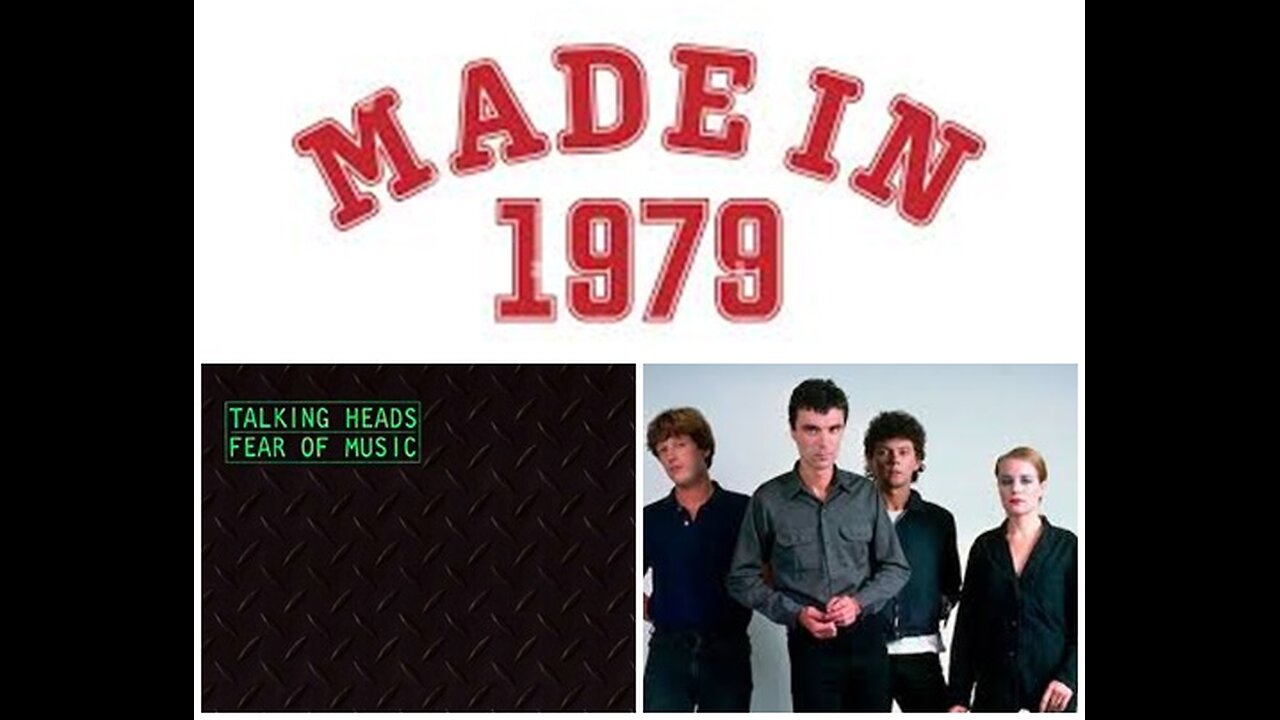
My top 20 albums for 1979 No 4
FEAR OF MUSIC
Year Of Release: 1979
Record rating = 9
Overall rating = 13
Paranoid, yet catchy and easily accessible. Congratulations, boys, you managed to tame down your insane ring-ring-ring.
Best song: CITIES. Or LIFE DURING WARTIME. Or whatever you want
Track listing: 1) I Zimbra; 2) Mind; 3) Paper; 4) Cities; 5) Life During Wartime; 6) Memories Can't Wait; 7) Air; 8) Heaven; 9) Animals; 10) Electric Guitar; 11) Drugs.
I still can't decide if Fear Of Music qualifies as the best album of 1979 or not - it's almost on par with the Police's offering of the same year. I'd still give the Nobel prize to the Police if I could (and if Nobel wasn't such a smartass and left over something for all the musicians out there), because I'm just somewhat more reverend towards their style than to David Byrne's "ethnic lunacy", but that's minor quibbling in the literal sense of the expression. Seriously now, Fear Of Music, even if it was only released a year after More Songs, is an improvement over that album, good as it was itself, in almost every possible way. Preserving the mind-boggling grooves of that record, together with its producer (Eno), Mr Byrne adds in two key elements, each one of which boosts the record an extra point.
Key element number one is a super-duper pop sensibility that got lost somewhere on the highway while they were talking about buildings and food. Not only is every song listenable and having a personality of its own, but most of them are chock-full of smooth hooklines that become absolutely irresistable on second listen ('cuz they're a bit annoying and repetitive on the first one). Could I stick out a little metaphor? Thank you. I'd say that the material of More Songs was like a new and ground-breaking type of dough, cleverly prepared and wisely patented by chef extraordinaire; Fear Of Music, though, puts that dough into the oven, bakes the whole pie and doesn't forget to cut it into reasonable portions so that everybody could get one's share and not bitch over the slicing process. I mean, the songs are still somewhat similar in style, tempo, and key (although there's a heavier reliance on minor chords here than before, which makes the album really really gloomy in places), but since all the hooklines are different, it doesn't seem anymore like Byrne and co. just wrote that record in order to lay down their unique brand of rhythm playing. What good is unique rhythm playing if all you do is uniquely playing rhythm, after all?
Key element number two is that the record really makes sense - and a lot of it. This is clearly a concept album, and not only that - it's a real concept album, which is very unusual, since most 'concept albums' are in fact pseudo-concept albums, whose main purpose is to leave the listener behind gaping at what the possible 'concept' could really be (think Sgt Pepper, eh?). The concept that lies behind all these songs is somewhat similar to the concept of Dark Side Of The Moon: fear and insecurity, madness and desperation at the sight of everything that's actually mentioned in these songs: their titles speak for themselves - 'Paper', 'Cities', 'Mind', 'Heaven', 'Animals', 'Air', 'Drugs', 'Electric Guitar'... Somebody at the Prindle site suggested that the key to understanding the record is its title: substitute 'music' from the title and put in most of these individual song titles, and you get exactly that same message that Mr Byrne wanted to communicate us. I really couldn't agree more about that. And while the album loses a little bit to DSOTM in terms of epicness and seriousness, it picks everything back up in terms of intriguing, ambivalent lyrics, clever arrangements, and diversity.
Of course, the main proof of this album's greatness is that it's extremely hard to select any highlights - try as I can, I can't find even one weak number on here; perhaps only the closing five-minute drone of 'Drugs' overstays its welcome, as the song has too few energy to compensate for the length. (Why is it that the worst song on the record almost always has to be the lengthiest? Is it because the lengthiest song on the record always has to be the worst?). Even so, it's hardly bad, because the song's main 'dripping' hookline is pretty solid.
Otherwise, it's just one excellent groove after another. As a short promising intro, the Heads pioneer world beat in 'I Zimbra' with its moody ethnic African rhythms - the song would later serve as a blueprint for the entire Discipline album by King Crimson. (That was hyperbole, but unless you can't tell hyperbole from hyperbollocks, just forget that last sentence). Then Byrne promises to find something to change your mind, discovering a couple unforgettable guitar riffs on the way; bounces his way through the thunderstormy 'Paper', with one of the most complex and fascinating rhythm tracks on the album; and proceeds to my current favourite, the electric piano-dominated 'Cities', which somehow ties in the paranoid guitar rhythms with music hall keyboards and disco bass, not to mention the lyrics, as David keeps busy trying to find himself a city to live in. Something makes me think he's left dissatisfied with all of the possible choices...
...which makes him jump to the angry, uncompromising single 'Life During Wartime', the ultimate synth-popper if there ever was one, and to the bombastic, overwhelming 'Memories Can't Wait' that thrusts us into the even weirder section of the album, as echoes, tons of special effects and drugged-out, lunatic fantasies make their real appearance. That said, did I mention that the lunatic fantasies are all solidly anchored in tasty riffs and carefully structured out, never getting out of control? Turn in that information, please. 'Air' is pretty and atmospheric; 'Heaven', with its key phrase ('heaven is a place where nothing ever happens'), and sad, melancholic mood, lets us know that you can't escape shit even in the saintest of locations; 'Animals' is the funniest anti-animal rave I've ever heard occur on this planet (I can almost picture Byrne impersonating a drunk professor opening up his heart to somebody in a fit of uncontrolled anger!); and 'Electric Guitar' is just... strange. Is it a condemnation of rock music? Or a condemnation of people opposing music? Or just... words? In any case, these are words spoken out with a vengeance, and propped up against an energetic rhythm pattern (Chris Frantz is the main star on this song - his drumming almost makes it worthwhile on its own) and a groovy five-note riff forming a perfect counterpoint for Byrne's raving.
If anything ever lets the album down, it's a feeling that the band still can't (and would actually never be able to) overstep its own groove and broaden the perspective - the record holds no real surprises, except for an amazing level of consistency and quality. It also hurts that Fear Of Music is so seriously soulless - 'Heaven' might be the sole tiny exception - and Byrne never really lets you enter his own personal world (something that really ties him in together with another David, if you know who I mean). But melody-wise and approach-wise, any complaints would be futile; this is one of New Wave's highest points, and a record that should really go down as an absolute classic. Why some reviewers put it down as 'transitional' and 'not fully representative' is way beyond me; for my money, this is the most perfect and adequate artistic statement that the band ever produced. Ever.
-
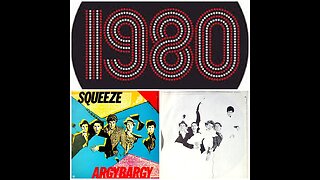 8:24
8:24
JohnVicarysMusicPassions
17 hours agoMy Top 20 Albums from 1980 no 9
13 -
 LIVE
LIVE
Major League Fishing
3 days agoLIVE! - Bass Pro Tour: Stage 1 - Day 3
732 watching -
 47:00
47:00
vinndoggradiousa
5 days agoBYE LEGACY MEDIA guest/ Sam Anthony of YourNews.com
14.5K -
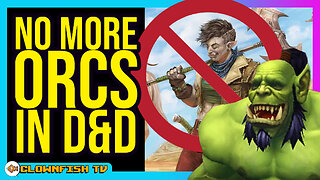 13:55
13:55
Clownfish TV
17 hours agoOrcs REMOVED from Dungeons & Dragons New Monster Manual?!
15.4K10 -
 15:38
15:38
Chris From The 740
8 hours ago $5.40 earnedThe EAA Girsan Match X 2311 : Premium Features, Unbeatable Value!
63.3K13 -
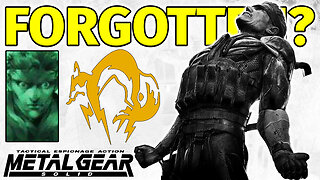 14:23
14:23
Degenerate Jay
5 hours ago $0.81 earnedPeople Forgot What Metal Gear Solid Is?
34.3K5 -
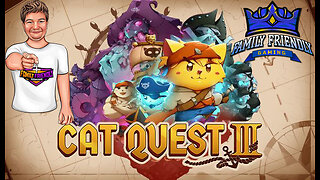 1:01:23
1:01:23
FamilyFriendlyGaming
18 hours ago $3.73 earnedCat Quest III Episode 14
43.9K -
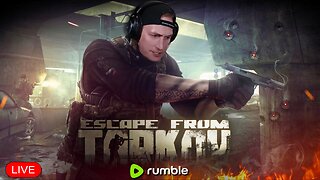 3:16:59
3:16:59
RG_GerkClan
7 hours ago🔴LIVE - Dominating One Raid at a Time - Escape From Tarkov - Gerk Clan
38.8K1 -
 1:49:43
1:49:43
Game On!
16 hours ago $2.36 earnedNFL Experts Top 10 Super Bowl Props!
30.8K2 -
 28:31
28:31
SB Mowing
1 day agoSiblings FEUD went so far the grass grew TALLER THAN THE HOUSE
83.4K20